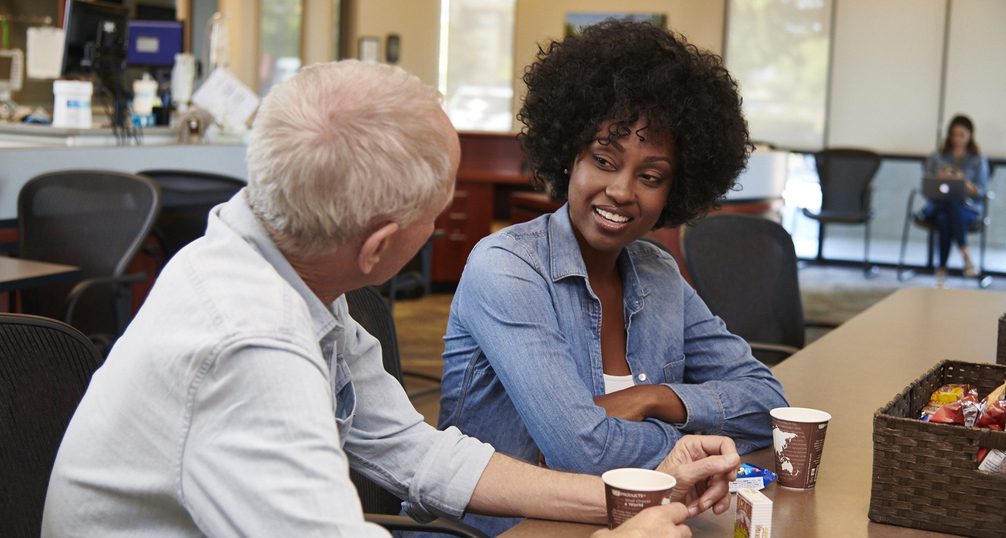So you just donated blood, that simple and singular act with the potential to save more than one life. While your donation is on its way to do great things, your mission’s not quite done. Taking good care of yourself after donating helps your body recover and ensures you're ready to donate again when the time comes. Plenty of questions will probably come to mind. What to eat after donating blood? Should I expect any bruising after blood donation? What to do after donating blood?
Here are some post-donation tips to help you stay healthy and feel your best:
1) Keep the Bandage On
After your donation, you’ll receive a pressure bandage on your arm to prevent bleeding and minimize bruising. Leave this bandage on for at least four hours, and avoid lifting heavy objects or strenuous activity during that time. If you notice bleeding through the bandage, apply gentle but firm pressure and raise your arm above heart level for several minutes. This usually stops any post-donation bleeding.
2) Drink Lots of Fluids
Hydration is key! You just gave about a pint of blood, so it’s important to replenish fluids. For the rest of the day — and especially the next 24 hours — drink plenty of water or other non-caffeinated beverages. Drinks with electrolytes are great choices. Avoid alcohol until the next day, as it can dehydrate you and make it harder for your body to bounce back.
3) Treat Yourself (Literally)
Eating something after your donation isn’t just a tradition — it’s actually important for your recovery. You’ll want to replenish your energy and iron stores, and you can start by enjoying a delicious snack in the refreshment area right after you donate. Salty or sweet, your choice. Vitamin C helps your body absorb iron, which is why combining the two matters. When you get home, have a light meal; something with iron and vitamin C is ideal.
Sample menu items to consider:
-
A spinach salad with strawberries or oranges (iron + vitamin C = perfect combo)
-
Iron-fortified cereal with milk
-
Lean red meat or poultry paired with steamed broccoli
-
A peanut butter sandwich and a glass of orange juice
-
A turkey sandwich with cranberry juice
And yes, that cookie you ate was one hundred percent deserved.
4) Skip the Workout (for Now)
We know — you’re feeling great because you just saved lives! But your body needs time to adjust, so take it easy the rest of the day. Skip vigorous workouts, hot tubs or anything that could raise your body temperature.
Rest, stay cool, and give your body the chance to replace the fluid volume you donated. You’ll be back to your routine in no time, and slowing down for a few hours can make a big difference!
5.) Listen to Your Body
It’s rare, but you might feel lightheaded, dizzy or tired. If this happens:
-
Lie down and elevate your legs until the feeling passes
-
Drink water
-
Eat a salty snack
These simple steps typically help restore your balance. If you experience persistent symptoms or feel unwell for longer than a few hours, don’t hesitate to reach out to us or your healthcare provider.
6.) Set Yourself Up for the Next Donation
Did you know you can donate whole blood again in 56 days? Your one donation may save lives, but consistency is important, too. It keeps hospitals supplied and patients cared for year-round. We’d love to see you again! Every two seconds in the U.S., a patient needs a transfusion.
7.) Every Drop Makes a Difference
You may not meet the patients whose lives you touch — but know this: Within a few days after donation, your donation may already be helping someone in surgery, a trauma patient, or a person undergoing cancer treatment. Blood has no substitute, and there’s no limit to the power of real human generosity.
It’s important to take care of yourself, too, and these tips will come in handy every time you choose to help. Thank you for showing up and saving lives. Your donation journey doesn’t end when you walk out the door — your impact is just beginning. Schedule your appointment today.

